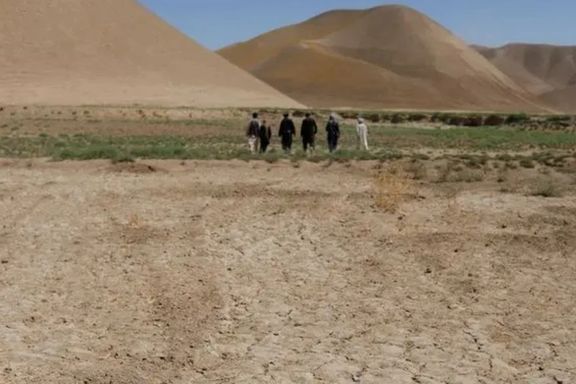UN Tries to Release Afghanistan's Blocked Climate Budget

Several UN agencies are trying to make Afghanistan's blocked climate funds available, which have been frozen since the Taliban seized power in the country.

Several UN agencies are trying to make Afghanistan's blocked climate funds available, which have been frozen since the Taliban seized power in the country.
If this effort is successful, the Food and Agriculture Organisation of the United Nations (FAO) and the United Nations Development Programme (UNDP) will allocate $19 million for climate programmes.
Afghanistan is one of the most vulnerable countries affected by climate change. The country, which is experiencing deadly droughts and floods, has not been able to receive climate funding from international institutions since the Taliban's recapture in 2021.
The two UN agencies plan to submit proposals for nearly $19 million to the UN's Global Environment Programme next year.
The Food and Agriculture Organisation (FAO) is seeking a $10 million budget to improve natural resource management in four Afghan provinces.
Meanwhile, the United Nations Development Programme (UNDP) plans to provide $8.9 million to rehabilitate rural communities as livestock in villages have been severely affected by drought.
According to Reuters, the UN development programme also plans to provide an additional $20 million in funding.
In its proposal, the agency emphasises that the climate budget should be presented to the people without directly transferring it to the Taliban.
"We are in talks with major climate financial institutions, including the United Nations Environment Programme, to bring funds back into Afghanistan, without them being available to the Taliban," said Stephen Rodriguez, a representative of the United Nations Development Programme.
Dick Trenchard, FAO Country Director in Afghanistan, said, "There is no doubt about the effects of climate change in Afghanistan. You can see the effects everywhere."
Since the Taliban's takeover in 2021, no new funds have been allocated to Afghanistan. If the UN's efforts in this regard bear fruit, it will be the first time in three years that a new international climate budget has been allocated to Afghanistan.
The two organisations must receive initial approval from the secretariat of the United Nations World Environment Programme (GEF) in order to be able to submit their proposals for donations.
Flash floods in Afghanistan have claimed hundreds of lives this year, and the country is facing a food security crisis after a severe drought.
The Taliban has not yet been recognised by any country, however, the group's officials also attended the annual United Nations Climate Change Summit (COP29) in Baku for the first time this year.